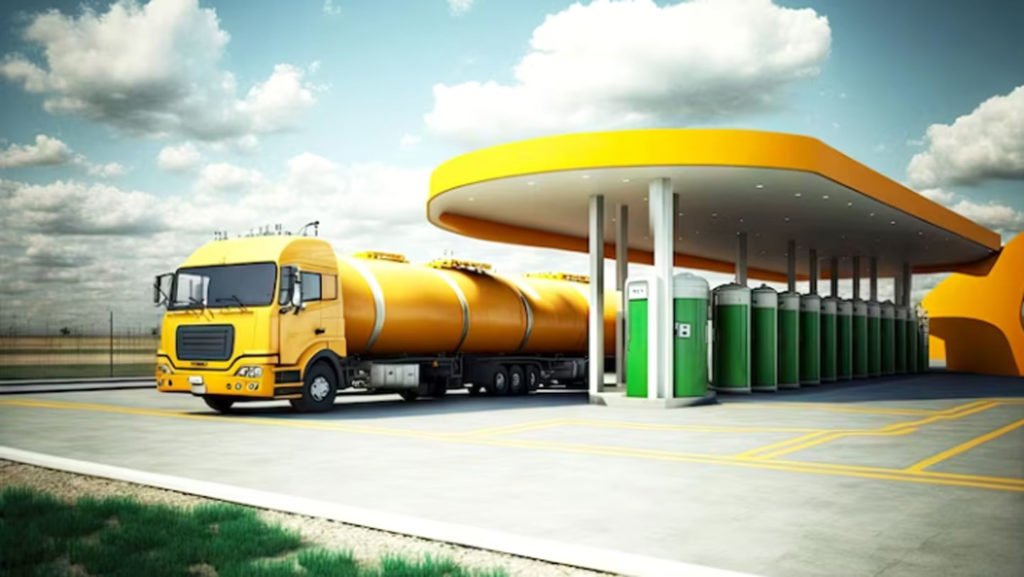Fuel costs are a significant expense in the trucking industry. To keep your bottom line healthy, it’s crucial to implement effective fuel management strategies. By adopting a few smart hacks, you can reduce fuel consumption, minimize costs, and increase profitability.
In this article, we will explore five fuel management tips specifically designed for trucking operations. Therefore, continue reading before you look for oversized vehicles prohibited.
Efficient Route Planning
Efficient route planning is a game-changer when it comes to reducing fuel consumption in trucking operations. By meticulously mapping out your routes, you can minimize mileage, avoid congested areas, and reduce idle time. The first step is to utilize advanced GPS navigation systems and route planning software.
These tools help you identify the most fuel-efficient paths, ensuring you avoid unnecessary delays and detours. When planning routes, consider factors such as construction zones and traffic patterns during peak hours.
By strategically timing your trips, you can navigate around heavy traffic and maintain a steady flow. Additionally, grouping deliveries in the same geographic area helps minimize backtracking and maximizes fuel efficiency. Consolidating shipments and optimizing load capacity also contribute to fuel savings.
Maintain Proper Tire Pressure
Proper tire pressure is a vital aspect of fuel efficiency for trucking operations. Underinflated tires increase rolling resistance, requiring more energy and fuel to keep the truck moving. Regularly checking and maintaining the recommended tire pressure for your truck and trailer is essential.
Investing in a quality tire pressure monitoring system can streamline this process. These systems provide real-time updates on tire pressure, allowing you to quickly identify any deviations and address them promptly. By maintaining optimal tire pressure, you not only reduce fuel costs but also improve overall safety and extend tire life.
In addition to regular pressure checks, pay attention to tire tread depth and wear patterns. Uneven wear indicates potential alignment or suspension issues, which can further decrease fuel efficiency. Conduct routine inspections to identify and address these problems early on, ensuring your tires perform optimally.
Implement Fuel-Efficient Driving Techniques
Driver behavior has a significant impact on fuel consumption in trucking. Encouraging your drivers to adopt fuel-efficient driving techniques can result in substantial fuel savings over time. By making a few simple adjustments to their driving habits, your drivers can contribute to cost reduction efforts.
One crucial tip is to maintain a consistent speed. Rapid acceleration and frequent braking waste fuel. Encourage your drivers to accelerate smoothly and anticipate upcoming stops to minimize unnecessary braking.
By maintaining a steady speed, drivers can maximize fuel efficiency. Reducing idle time is another essential technique. Excessive idling consumes fuel without any productive output. Encourage drivers to turn off the engine during extended stops or when waiting for extended periods.
Embrace Technology Solutions
Technology solutions play a pivotal role in effective fuel management for trucking operations. Leveraging the power of telematics systems and fleet management software can provide valuable insights and facilitate data-driven decision-making.
Telematics systems track various parameters such as fuel usage, engine performance, and driver behavior. By monitoring this data, you can identify areas for improvement, detect anomalies, and address them promptly.
Telematics also provide real-time visibility into fuel consumption, allowing you to monitor fuel efficiency on a per-trip or per-driver basis. Fuel cards are another technology-driven solution that can help reduce fuel expenses. Many fuel card programs offer discounts, rewards, and the ability to track fuel purchases.
Regular Vehicle Maintenance
Proper vehicle maintenance is essential for optimal fuel efficiency. Regularly schedule tune-ups, oil changes, and air filter replacements to ensure your truck’s engine operates at peak performance. Neglected maintenance and oversized vehicles prohibited issues can result in reduced fuel efficiency and higher costs.
Additionally, pay attention to the aerodynamics of your truck by ensuring trailers and other attachments are properly aligned. Addressing these maintenance aspects will help maximize fuel efficiency and minimize expenses.
Conclusion
Reducing fuel costs is a priority for any trucking operation. By implementing these fuel management hacks, you can optimize your routes, maintain proper tire pressure, promote fuel-efficient driving techniques, leverage technology solutions, and prioritize regular vehicle maintenance.
Remember, fuel management is an ongoing process, so continuously monitor your operations, analyze data, and adapt your strategies as needed. With these hacks in your toolbox, you’ll be on the road to a more cost-effective and profitable trucking business. Safe travels!



